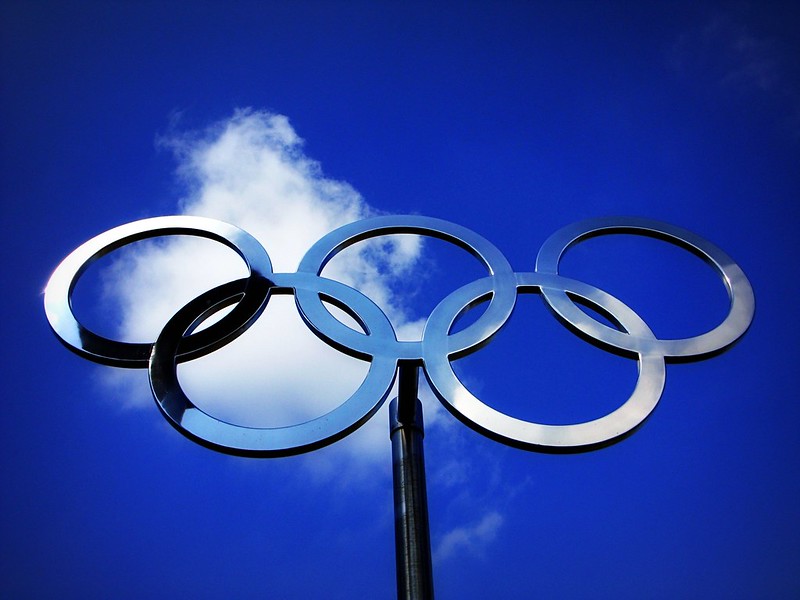If the IOC has excluded Russia from the games for actions contrary to the Olympic ethos of peace, then consistency demands scrutiny of all participants.
Sophia Brooks is a Manchester, U.K.-born, California-based art dealer who writes as a hobby and seeks a world without war or terrorism.
Cross-posted from Common Dreams

An ancient adage states, “To kill is to invite punishment, except when done en masse.” Despite the passage of over half a century since the United Nations Charter’s inception and the centennial of the National Olympic Committee’s founding in 1894 in Paris, the assertion that sports remain apolitical continues to present challenges.
In a notable September 2023 action, the International Olympic Committee (IOC) initiated legal proceedings against Russia, citing a violation of international peace, and subsequently barred its participation in the Olympic Games. This move echoed a prior decision that also excluded Russia’s football team from the Qatar 2022 World Cup qualifiers.
Eligibility for Olympic participation hinges on the IOC’s endorsement, which can be revoked at any discretion, often without justification. This authority was notably exercised during the war in Ukraine, where the eastern regions’ occupation led to the seizure of Ukraine’s National Olympic Committee offices. Concurrently, concerns arose over the politicization of the Olympics by nations like Russia, where athletic triumphs have been appropriated to fuel expansionist agendas and bolster nationalistic fervor. The athletes’ intent notwithstanding, their achievements may inadvertently endorse these ideologies. This was exemplified when Russia, following its annexation of Crimea, invested an unprecedented $51 billion in the 2014 Sochi Winter Olympics—equivalent to the cumulative cost of all prior Winter Games—while the IOC maintained a conspicuous silence on both the annexation and calls for an Olympic boycott.
Given the IOC’s stance that violators of international peace should not partake in global events like the Olympics, it begs the question: Why is Israel not subject to similar prohibitions? Historically, even in the absence of IOC intervention, host nations have exercised their right to impose sanctions on countries compromising global peace, often supported by international allies and civil society movements. The expectation for the IOC, and other nations, to prevent Israeli participation is rooted in historical actions.
For example, Belgium, hosting the 1920 Olympics, excluded its geopolitical adversaries, including Germany, Austria, Bulgaria, Hungary, and Turkey, with Germany’s exclusion extending until 1928. Similarly, the 1928 London Olympics did not extend invitations to Japan and Germany. These decisions were autonomously made by the host countries. However, the IOC itself has taken decisive action, such as barring South Africa from the 1964 Tokyo Olympics and maintaining this exclusion through the 1968 Mexico City games until the apartheid regime’s end in 1992. The IOC invoked a comparable rationale to exclude Afghan athletes during Taliban rule in 2000.
Recent reports suggest that Israel intends to send a substantial delegation to the upcoming Olympic Games. Amid this, there is a growing discourse on the IOC’s impartiality and the potential for international advocacy to influence its policies. Questions are being raised about the IOC’s consistency in upholding its standards, particularly in light of allegations regarding the repurposing of Gaza’s Elimuk Stadium. Reports of the stadium’s conversion into a detention and interrogation center have sparked calls for accountability and action. Furthermore, the reported destruction of the Gaza Olympic Committee’s office and the killing of Palestinian athletes have intensified debates over Israel’s participation in the Paris Olympics. In light of these events, organizations like Amnesty International have highlighted the urgency of investigating alleged Israeli war crimes in Gaza.
The crux of the debate lies in the absence of steadfast principles for upholding peace and countering aggression and occupation. The notion that nations breaching the sovereignty of others should be excluded from the Olympics and global sporting events, as a reflection of the “community of nations,” remains contentious. While some argue that, based on this principle, the United States might have faced Olympic bans for its involvement in the Vietnam, Iraq, and Afghanistan wars, the reality is that the idea of “sports transcending politics” and the exclusion of “the wrong country” from the Olympics is more aspirational than actualized. Moreover, it’s noteworthy that the IOC has even penalized athletes for expressing moral and humanitarian support for Palestinians, indicating a complex interplay between sports, politics, and ethics.
If the IOC has excluded Russia from the games for actions contrary to the Olympic ethos of peace, then consistency demands scrutiny of all participants. It raises the question of whether it is appropriate for any nation, if condemned by the International Court of Justice for grave violations, to compete without addressing its international obligations.
Due to the Israeli war crimes in Gaza we have increased our coverage from five to six days a week. We do not have the funds to do this, but felt that it was the only right thing to do. So if you have not already donated for this year, please do so now. To donate please go HERE.


Be the first to comment